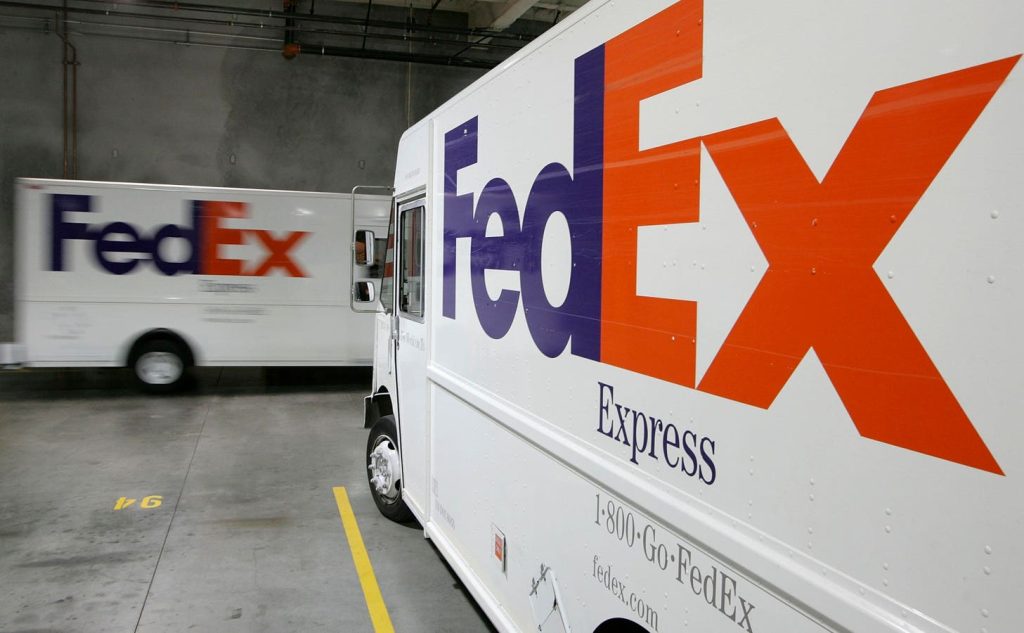If you’ve been reading my columns for a while, you’re probably sick of hearing about the “Dividend Magnet.” (I’m starting to think I should put it on my license plate. Too bad the California DMV has a seven-character limit!)
Well, we got another quick Dividend Magnet win last week, when my latest pick for our Hidden Yields service, FedEx Corp. (FDX), shot up 17% five days (including a weekend) after our buy call.
To be honest, we Hidden Yield-ers are used to seeing gains on stocks that grow their dividends fast, like FDX, which hiked its payout 112% in the last five years. Just not quite this fast!
You can see FedEx’s Dividend Magnet—or the tendency of its stock to pace its payout higher—in action in the five-year chart below. The payout pulls up the stock, which then shoots ahead, falls back and now, with last week’s jump, starts to close the gap again.
As I wrote in the June issue of Hidden Yields, first-level investors tend to buy and sell FedEx late. The stock is, of course, a play on the growth of e-commerce, and back in late 2020 and 2021, they bid it up just as people were getting ready to leave their homes and explore brick-and-mortar retail again.
Then they gave us one more 14% pullback since March. It was a great setup, with the share price now far behind the payout, so we took advantage (thanks, mainstream crowd!): I issued a buy call in the June Hidden Yields, which dropped Friday, June 21.
Then on Tuesday June 25, after market close, FDX released its latest earnings report, showing the company’s cost-cutting plan was, er, delivering results, driving profits past expectations. Management also said it’s considering a spinoff of its FedEx Freight less-than-truckload delivery service, potentially unlocking even more shareholder value.
That provided the spark the stock needed to start closing the “dividend gap.” Our double-digit rally ensued.
The Dividend Magnet Is a Great Long-Term Strategy, Too
It’s a good example of how we use the Dividend Magnet to grab a growing income stream and price gains. The key, as our FDX example shows, is to buy when the price lags the stock’s payout growth. Then we “ride along” as the gap closes.
My favorite long-term example is Texas Instruments (TXN), which we bought in Hidden Yields way back on June 16, 2017. We then held on for five years as the price eventually caught up, then shot ahead of the dividend in January 2022.
That was our cue to sell—so we did, bagging 117% price gains and 130% dividend hikes, for a 148% total return (and dodging the 2022 tire fire in the process.)
Here’s something else most folks don’t realize about dividend hikes like this: They grow the yield on your original buy—and fast! At the time of our buy call, TXN boasted a yield of around 2.6%. But thanks to that 130% payout growth, they were yielding 5.8% on their original buy five years later.
If you’re like most folks, you’re probably nodding along as you read this. Truth is, most people know this is the right way to invest. They just haven’t had it laid out for them in quite this way before.
A Proven Buy Signal
TXN’s dividend-up, share-price-up pattern was well-established when we bought, giving us an idea of the gains we could expect, especially in light of management’s history of rewarding shareholders through constant dividend hikes and share buybacks.
Take a look at this chart in the five years leading up to our buy. The pattern is uncanny!
TXN is one of many examples we’ve profited from. Another is our recent buy of drugmaker Amgen (AMGN) in April 2024, which has already posted a 17% return. The company’s Dividend Magnet is proven:
Or food maker Mondelez International (MDLZ), which we bought in April 2020, just as lockdowns set in and restaurants fell off the menu. When we sold three years later—taking a 40% gain with us—the stock had caught up to, and overshot, its payout:
That was our signal to step out, and we’re glad we did: MDLZ has dipped 6.4% since, even as the broader S&P 500 gained 32%.
Look, I’m not going to tell you that things work out like this all the time. Sometimes market crashes (like in 2022, for example) mean it makes more sense for us to move to the sidelines and buy back in when prices are lower. Other times there are problems unique to companies that send a stock price permanently off-course. But there are plenty more examples like the ones above.
Finding the Next FedEx
So where does that leave us? Well, corporate America has plenty more juice for payout hikes: According to S&P Global Market Intelligence, US firms will spend $24 billion more on dividends in 2024 than in ‘23, growing their regular payouts an average of 6%.
Of course, some stocks will pay more, some less.
So we’ve got plenty of options to pick from here: the key, as always, will be to sift out the next FedEx: another unloved dividend grower whose share price has fallen off the pace.
Brett Owens is Chief Investment Strategist for Contrarian Outlook. For more great income ideas, get your free copy his latest special report: Your Early Retirement Portfolio: Huge Dividends—Every Month—Forever.
Disclosure: none
Read the full article here

